Physics
-
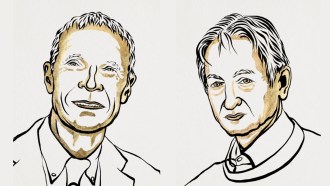 Artificial Intelligence
Artificial IntelligenceThe discovery of tools key to machine learning wins the 2024 physics Nobel
John Hopfield and Geoffrey Hinton used tools from physics to develop data analysis methods that underlie machine learning.
-
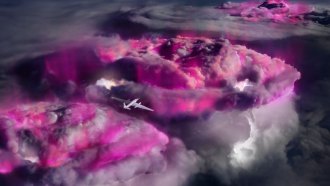 Physics
PhysicsThunderstorms churn up a ‘boiling pot’ of gamma rays
A thunderstorm seen in gamma-ray vision is a complex, frenetic lightshow when viewed from above the clouds.
-
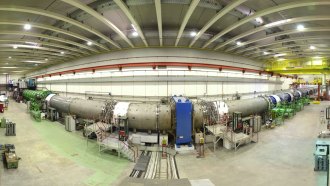 Particle Physics
Particle PhysicsPhysicists just discovered the rarest particle decay ever
The “golden channel” decay of subatomic particles called kaons could break or confirm the standard model of particle physics.
-
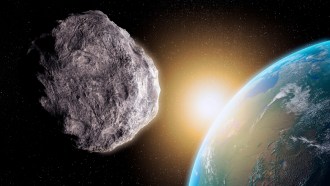 Physics
PhysicsX-rays from nuclear blasts could defend Earth from asteroids
The X-ray pulses could deflect asteroids up to 4 kilometers wide, a new study suggests.
By Nikk Ogasa -
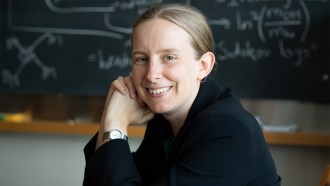 Cosmology
CosmologyHow did dark matter shape the universe? This physicist has ideas
Theoretical physicist Tracy Slatyer proposes new scenarios for dark matter and helped discover the Fermi bubbles.
By Adam Mann -
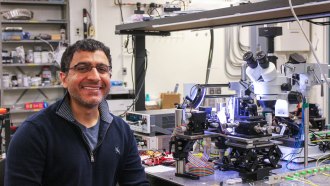 Computing
ComputingThis engineer’s light-based computers take inspiration from the brain
Physicist and engineer Bhavin Shastri is working to create the first photonic computer modeled after the human brain.
By Claire Yuan -
 Quantum Physics
Quantum PhysicsWhy this physicist is bringing thermodynamics to the quantum age
Like a steampunk fantasy-world, which pairs high-tech with an old-timey setting, Nicole Yunger Halpern melds old and new science.
-
 Life
LifeThis biophysicist’s work could one day let doctors control immune cells
The Stanford biophysicist thinks that understanding the mechanics of cell movement could allow scientists to manipulate immune cells.
By Meghan Rosen -
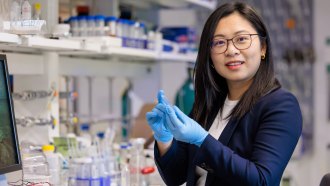 Materials Science
Materials ScienceA materials scientist seeks to extract lithium from untapped sources
Lithium is an essential ingredient for batteries in electric vehicles but getting enough will become a problem.
By Anna Gibbs -
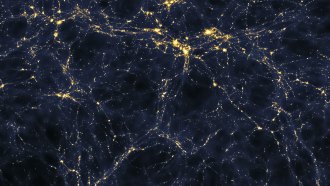 Particle Physics
Particle PhysicsA neutrino mass mismatch could shake cosmology’s foundations
Cosmological data suggest unexpected masses for neutrinos, including the possibility of zero or negative mass.
-
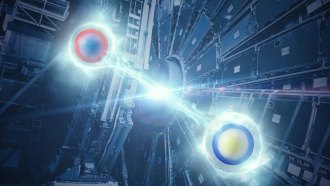 Particle Physics
Particle PhysicsThe Large Hadron Collider exposes quarks’ quantum entanglement
Top quarks and antiquarks produced in the Large Hadron Collider are entangled, a study shows.
-
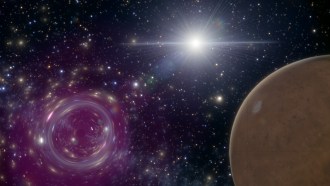 Physics
PhysicsHow to spot tiny black holes that might pass through the solar system
Flybys of primordial black holes may occur once a decade. Tweaks to the orbits of planets and GPS satellites could give away their presence.